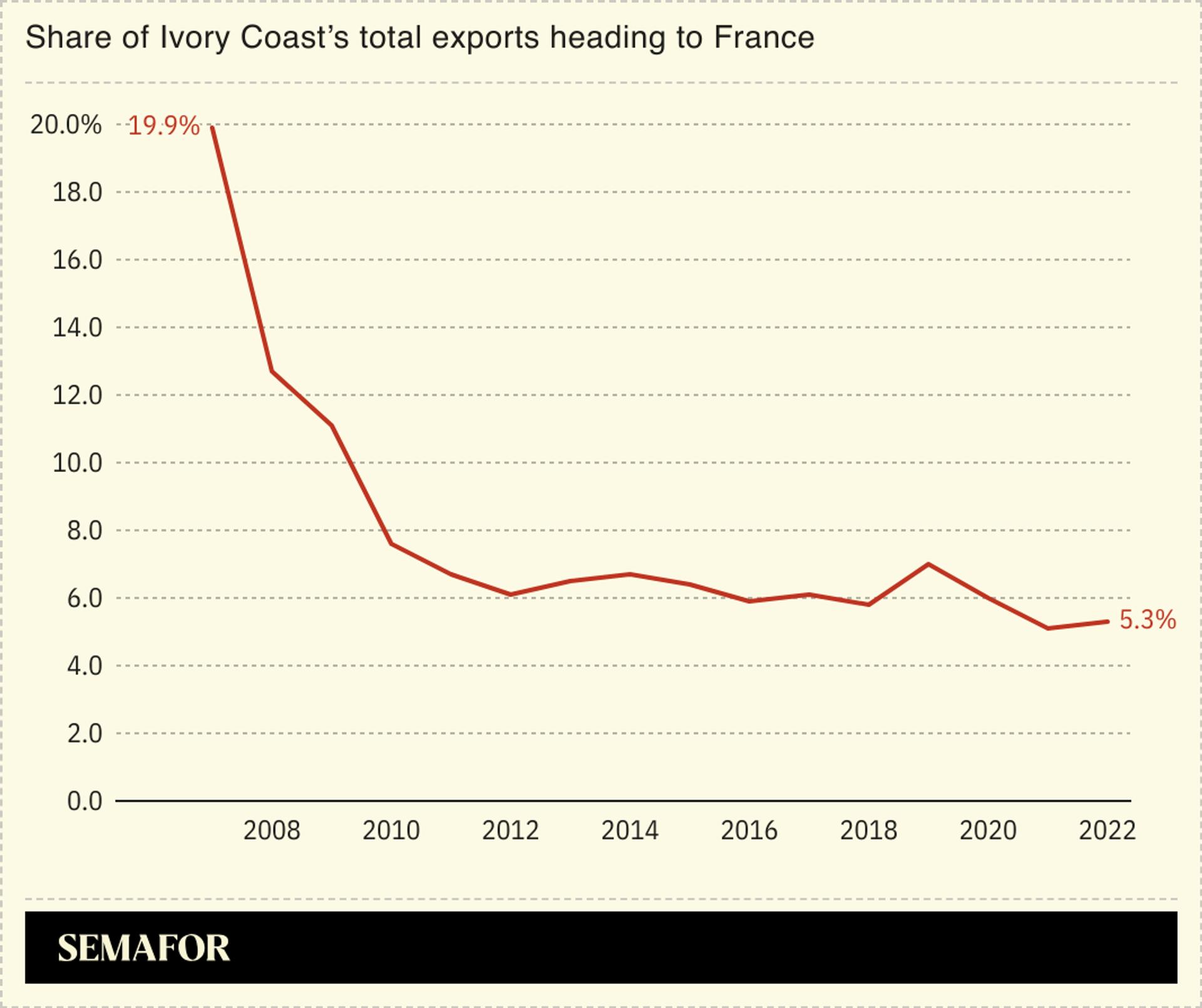The News
Ivory Coast said French troops would withdraw from the nation, part of Paris’ wider retreat from its former colonies.
“We can be proud of our army, which has now been effectively modernised. It is in this context that we have decided the concerted and organised withdrawal of French forces from Ivory Coast,” Ivorian President Alassane Ouatt said in an end-of-year address.
France’s forces have also left Burkina Faso, Chad, Mali, and Niger in recent months, after a series of military coups.

SIGNALS
France’s military presence in Africa has dramatically declined
France’s era of “neocolonial interference” in Africa saw Paris intervene on around 30 occasions to militarily defend its former colonies’ newly independent governments against opposition rebels and coups between 1964 and 2012, El País noted. That dynamic has changed as many African nations have ramped up criticism of France as infringing on their sovereignty: “The African armies of the 1980s and 1990s were fed by French material, doctrine, and even esthetics, but now there are other sources of supply, a market in which Paris is not present,” an analyst told the outlet. French forces will remain only in Djibouti and Gabon, a “far cry from its many troops that were stationed in the Sahel fighting jihadists just three years ago,” The New York Times wrote.
Russia has sought to exploit power vacuums in Africa
France’s drawback presents an opportunity for Russia, which has used a “low-cost, high influence strategy” — involving mercenaries, disinformation, and other “extralegal” means — to expand its influence across Africa, the US government-backed Africa Center for Strategic Studies argued. Yet despite Moscow’s considerable influence across the Sahel, Russian forces are struggling to maintain security amid rising jihadist attacks, an Africa expert argued for the European Council on Foreign Relations. Moscow’s unwillingness to interfere in the fall of Syria’s regime may further undermine Russia’s influence, another expert wrote in Foreign Policy: “As the illusion of Russian power in Syria has been definitively shattered, African autocracies are second-guessing Moscow’s ability to serve as their last line of defense in a moment of crisis.”


